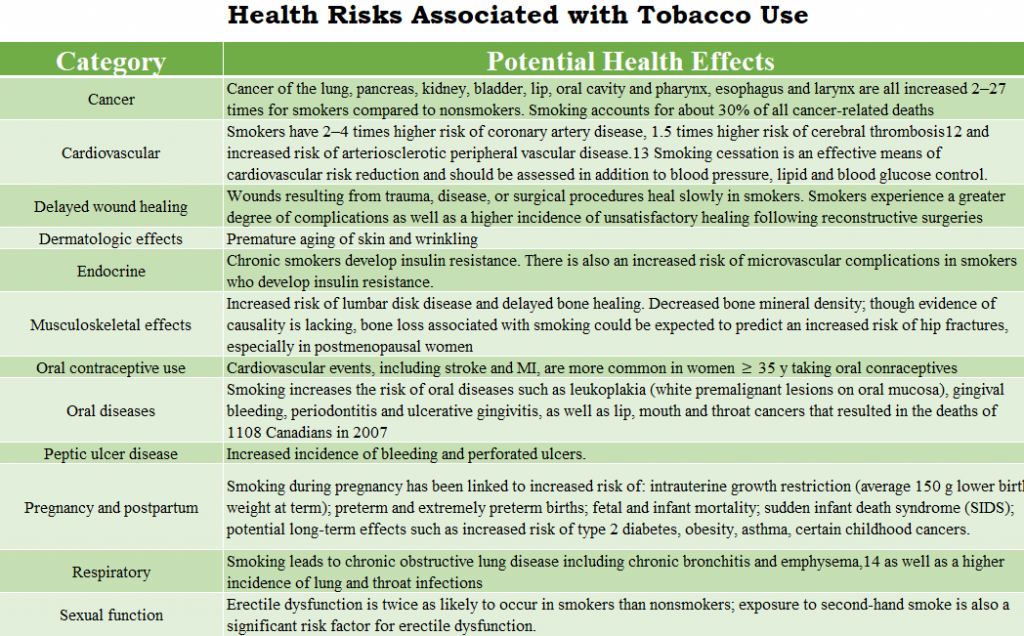How to Quit Smoking?

Pathophysiology
The intricate nature of nicotine addiction involves a dynamic interplay among physical, psychological, and behavioral factors. As a stimulant, nicotine increases alertness, well-being, heart rate, and blood pressure. Nicotine quickly affects the brain’s pleasure system, causing strong addiction. This leads to cravings, increased use, and significant withdrawal symptoms due to brain changes.
Prevalence
About 4.9 million Canadians, constituting 16% of the population, currently smoke. Nicotine addiction, acknowledged as a chronic medical condition, is the leading cause of preventable deaths in Canada. Annually, it claims over 37,000 lives, surpassing combined fatalities from car accidents, suicides, homicides, AIDS, and other substance abuse issues. It is advisable to avoid all forms of tobacco, including cigarettes, smokeless tobacco, pipe tobacco, cigars, and similar variants, as they pose significant health risks.
Health Risks
Smoking’s health risks stem from over 50 known carcinogens among the 4000 chemicals in tobacco smoke, including tar, arsenic, formaldehyde, ammonia, and nickel. Refer to the table below for a visual representation of these health risks.

Let’s do assessment!
If the degree of physical dependence is low as assessed by the Modified Fagerstörm Nicotine Tolerance Scale, the chances of successful smoking cessation are good even with behavioural assistance alone. If the degree of physical dependence is moderate to high (Fagerstörm score ≥ 6), the patient will likely require some form of pharmacotherapy (with or without behavioural assistance) to achieve success.

We can embark on this journey together!
Your path to quit smoking is unique, and we’re committed to supporting you every step of the way.
Regardless of whether you choose behavioral strategies or pharmacotherapy, your dedication is paramount for success. Moreover, your commitment, coupled with effective treatment, can significantly enhance your chances of quitting smoking. We believe in your ability to overcome this challenge, and together, we’ll celebrate your victories on the road to a healthier, smoke-free life.
The BC Smoking Cessation Program helps people stop smoking or using other tobacco products by assisting them with the cost of nicotine replacement therapy (NRT) products or smoking cessation prescription drugs. With NRT products, you can gradually cut down the amount of nicotine and handle withdrawal symptoms more easily. To register for NRT products under the BC Smoking Cessation program, visit or call our pharmacy.
Your journey to a smoke-free life starts now!